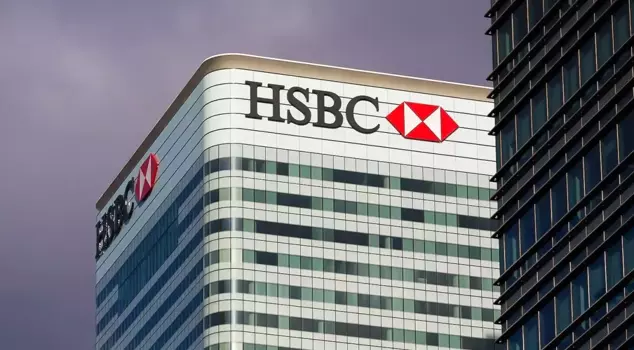
09.10.2025 18:03
HSBC Bank has decided to delist its subsidiary Hang Seng Bank from the stock exchange in Hong Kong. HSBC will purchase Hang Seng's publicly traded shares for 155 Hong Kong dollars per share, totaling 106.16 billion Hong Kong dollars (13.64 billion US dollars).
```html
The UK-based HSBC Bank announced that it will withdraw from the stock market by purchasing the shares of its subsidiary, Hang Seng Bank, in Hong Kong.
13.6 BILLION DOLLAR OFFER
HSBC Chief Executive Officer (CEO) Georges Elhedery announced the plan for Hang Seng's withdrawal from the stock market at a press conference held in Hong Kong.
According to the plan, HSBC will purchase Hang Seng's shares traded on the Hong Kong Stock Exchange for 155 Hong Kong dollars (19.92 US dollars) per share. After the purchase, the shares will be canceled, and the company will be delisted.
The acquisition, which is expected to cost HSBC 106.16 billion Hong Kong dollars (13.64 billion US dollars), will allow Hang Seng to continue operating with its current board of directors, brand, banking license, branch network, and operations.
SHARES ROSE IN ONE DAY
Bank shares, which were trading at 119 Hong Kong dollars (15.29 US dollars) at yesterday's close, rose to 149 Hong Kong dollars (19.15 US dollars) today following the announcement of the plan.
LOSSES IN MORTGAGES HAD REDUCED PROFITABILITY
Hang Seng announced on July 30 that its profitability had decreased by 30% in the first six months of this year. The increase in the amount of non-performing real estate loans, which rose by 85% to 25 billion Hong Kong dollars (3.2 billion US dollars), had a significant impact on the decline in profitability.
The 30% drop in real estate prices in Hong Kong compared to the peak in 2021 negatively affected the bank, one of the largest local credit institutions in the city, causing the ratio of non-performing real estate loans in its balance sheet to rise to 6.69% of all loans by the end of June.
HSBC became the controlling partner by purchasing 51% of Hang Seng's shares in 1965. The British bank, whose roots also date back to Hong Kong under British colonial rule, gradually increased its stake in the bank to 63% over time.
Hang Seng's shares, which were first publicly offered in 1972, have been traded on the Hong Kong Stock Exchange for over 50 years.
```